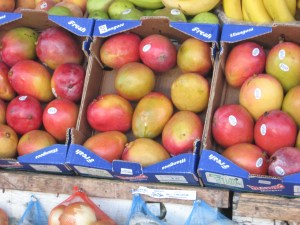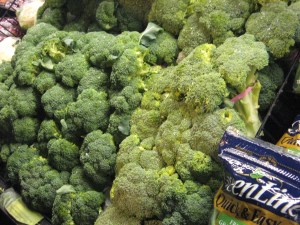Posts Tagged “cancer”

HERSHEY, Pa. — Mushrooms have been making headlines due to their many health advantages.
Not only do they lower one’s risk of cancer and premature death, but new research led by Penn State College of Medicine also reveals that these superfoods may benefit a person’s mental health.
Penn State researchers used data on diet and mental health collected from more than 24,000 U.S. adults between 2005 and 2016. They found that people who ate mushrooms had lower odds of having depression.
According to the researchers, mushrooms contain ergothioneine, an antioxidant that may protect against cell and tissue damage in the body. Studies have shown that antioxidants help prevent several mental illnesses, such as schizophrenia, bipolar disorder and depression.
“Mushrooms are the highest dietary source of the amino acid ergothioneine — an anti-inflammatory which cannot be synthesized by humans,” said lead researcher Djibril Ba, who recently graduated from the epidemiology doctoral program at the College of Medicine.
“Having high levels of this may lower the risk of oxidative stress, which could also reduce the symptoms of depression.”
White button mushrooms, which are the most commonly consumed mushroom variety in the U.S., contain potassium, which is believed to lower anxiety.
In addition, certain other species of edible mushrooms, especially Hericium erinaceus, also known as Lion’s Mane, may stimulate the expression of neurotrophic factors such as nerve growth factor synthesis, which could have an impact on preventing neuropsychiatric disorders including depression.
According to the researchers, college-educated, non-Hispanic white women were more likely to eat mushrooms. The average age of surveyed participants was 45, and the majority (66%) were non-Hispanic white people.
The investigators observed a significant association between mushroom consumption and lower odds of depression after accounting for socio-demographics, major risk factors, self-reported diseases, medications and other dietary factors. They said, however, that there was no clear additional benefit with relatively high mushroom intake.
“The study adds to the growing list of possible health benefits of eating mushrooms,” said Joshua Muscat, a Penn State Cancer Institute researcher and professor of public health sciences.
The team conducted a secondary analysis to see if the risk of depression could be lowered by replacing a serving of red or processed meat with a serving of mushrooms each day. However, findings show that this substitution was not associated with lower odds of depression.
Prior to this research, there have been few studies to examine the association between mushroom consumption and depression, and the majority have been clinical trials with fewer than 100 participants.
The researchers said this study highlights the potential clinical and public health importance of mushroom consumption as a means of reducing depression and preventing other diseases.
The researchers noted some limitations that could be addressed in future studies. The data did not provide details on the types of mushrooms. As a result, the researchers could not determine the effects of specific types of mushrooms on depression. Food codes issued by the U.S. Department of Agriculture were used to determine mushroom intake; therefore, some entries may have been misclassified or inaccurately recorded.
John Richie and Xiang Gao from Penn State Cancer Institute; Laila Al-Shaar and Vernon Chinchilli from Penn State College of Medicine; and Robert Beelman from Penn State College of Agricultural Sciences also contributed to this research. The researchers declare no conflicts of interest or specific funding support.
 by The International Nut & Dried Fruit Council
by The International Nut & Dried Fruit Council
Given the forecast and coinciding with the recent World Day against Cancer, the International Nut & Dried Fruit Council (INC) wants to share some facts that can help us live a healthier life and may help prevent this disease.
According to a recent study run by Harvard University, which analyzed over 100,000 people over 30 years, nut consumption was inversely associated with total mortality by over 20%, disregarding the cause, and had an inverse relationship with some of the most common causes of death, such as cardiovascular disease and cancer.
This study, the largest ever conducted investigating the effect of nut intake on mortality, concluded that participants who ate a daily handful of nuts reduced the chance of mortality due to cancer by 11%, compared to those who didn’t consume any nuts. Dr. Ying Bao concluded that “nut consumption was inversely associated with mortality, independently of other risk factors”.
In another study also run by Dr. Bao called “Nut consumption and risk of pancreatic cancer in women”, it was revealed that frequent nut consumption is inversely associated with the risk of pancreatic cancer in women, independent of other potential risk factors for pancreatic cancer.
Besides nuts, dried fruits are also suggested for cancer prevention, as they are as healthy as their fresh equivalent and high in polyphenols, which are strong antioxidants that may protect DNA against damage, decrease inflammation and prevent cancer.
Properties and Benefits
A number of scientific studies have demonstrated the health benefits of nuts and dried fruits. All these benefits are attributed to the multiple components that these products have, such as vitamin E, folic acid, magnesium, arginine, plant sterols and phytochemical compounds. Furthermore, they have a low content of saturated fatty acids, among others.
About the INC
The International Nut & Dried Fruit Council (INC) groups nearly 700 companies of the nut and dried fruit sector from over 70 countries. INC is the international organization of reference as regards nuts and dried fruits, health, nutrition, food safety, statistics, international standards and regulations.
 There has long been research — both anecdotal and data-based — suggesting a positive link between the eating of fruits and vegetables and healthy outcomes, including disease prevention.
There has long been research — both anecdotal and data-based — suggesting a positive link between the eating of fruits and vegetables and healthy outcomes, including disease prevention.
The National Mango Board is working to pursue the connection, specifically with mangos, and has some research on its side. The board is publicizing early results of some studies and refining the nutrition message as it promotes mango and green papaya salad.
New mango nutrition research on obesity and cancer are the subjects recently presented at the Federation of American Societies for Experimental Biology in Boston. The research identifies important findings that merit further investigation to determine whether mangos can potentially have a positive effect on blood sugar in obese individuals and help to limit inflammation.
An Oklahoma State University study examined the effects of daily mango consumption on the obese. Twenty adults participated in the study, consuming significant amounts of mangos in a dried form for 12 weeks. Blood sugar levels at the conclusion of the study were significantly lower than the baseline in both male and female subjects, but there were no significant changes in body composition for either gender.
Texas A&M had another study on the effects of polyphenols found in fresh mangos on cancerous and non-cancerous breast cells, which were examined. This study suggests that mango polyphenols might limit inflammatory response in both cancerous and non-cancerous breast cells. Because this was an in vitro study, more research is needed to determine whether mango polyphenols can have the same effect in humans.
The National Mango Board is actively marketing the nutrition message, which claims that mangos are a nutrient-rich fruit containing more than 20 different vitamins and minerals. The NMB states that mangos are an excellent source of the antioxidant vitamins C and A. Vitamin C is important for wound healing and immune function; and vitamin A is critical for vision and helps maintain healthy skin.
 Eating sweet Bing cherries significantly decreases circulating concentrations of specific inflammatory biomarkers in human blood. At least that is the “anecdotal support” resulting from a recent scientifc study by researchers at the U.S. Department of Agriculture Western Human Nutrition Center.
Eating sweet Bing cherries significantly decreases circulating concentrations of specific inflammatory biomarkers in human blood. At least that is the “anecdotal support” resulting from a recent scientifc study by researchers at the U.S. Department of Agriculture Western Human Nutrition Center.
“It represents seven years of research and work by the growers and the USDA to better understand the nutritional benefits of our sweet cherries,” said James Michael, vice president of marketing, North America for Northwest Cherry Growers and the Washington State Fruit Commission. “We’re proud to pass the word along.”
“Many studies by other investigators have demonstrated that some of those inflammation markers are associated with increased risk for some chronic diseases such as cardiovascular disease, diabetes and cancer,” said Kent Erickson, professor at the University of California Davis School of Medicine and a collaborator on the study.
The findings of the study were published in the March 2013 issue of The Journal of Nutrition.
“The study was initiated in 2006 and supported financially by the Northwest Cherry Growers,” Michael said. The purpose was to examine the effects of fresh sweet cherry consumption on concentrations of risk factors for chronic diseases.
Sixteen 16 women and two men were part of the research study. They had slightly elevated C-reactive protein levels, an inflammatory biomarker, and who were between the ages of 45 and 61. According to initial results, a reduction of the protein levels was detected in the subjects after consumption of sweet cherries.
“In 2010, researchers used automated methodology to examine a broad spectrum of 89 biomarkers of diseases with stored frozen plasma samples,” Northwest Cherry Growers wrote. “A second round of more detailed analysis demonstrated that cherries had more systemic impact than originally observed. The further testing showed that the sweet cherries had an effect on nine biomarkers rather than just the three originally identified.”
Kelley’s results showed that sweet cherry consumption may “reduce risk or modify the severity of inflammatory diseases such as arthritis, diabetes, CVD, blood pressure and cancer,” according to Northwest Cherry Growers.
Michael said a new sweet cherry powder has also been created for use in further scientific studies.
 by M. H. Traka, Institute of Food Research
by M. H. Traka, Institute of Food Research
Field trials and genetic studies have shown that a new variety of broccoli reliably yields higher levels of a health-promoting compound.
Broccoli contains a compound called glucoraphanin, which has been shown to promote health by maintaining cardiovascular health and a reduction in the risk of cancer. A long term breeding program to increase glucoraphanin levels has resulted in the commercial release of Beneforté broccoli. Beneforté was developed by crossing standard broccoli with a wild relative derived from Sicily.
Publicly funded research to develop Beneforté broccoli was led by two of the UK’s world-leading biological research institutes: the Institute of Food Research and the John Innes Centre, on the Norwich Research Park. They both receive strategic funding from the Biotechnology and Biological Sciences Research Council (BBSRC).
Three years of field trials at over 50 different sites in Europe and the United States have shown that Beneforté broccoli consistently produces 2-3 times the amount of glucoraphanin than other leading varieties of broccoli, without affecting yield, quality or the levels of other nutrients.
